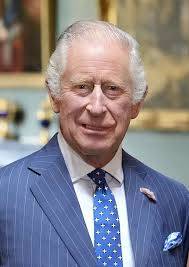Charles III, born Charles Philip Arthur George on November 14, 1948, is the current King of the United Kingdom and other Commonwealth realms, succeeding his mother, Queen Elizabeth II, in September 2022. His ascension to the throne marks a new chapter in British monarchy, characterized by continuity, tradition, and the evolving role of the royal family in contemporary society.
Charles Philip Arthur George was born at Buckingham Palace, London, as the eldest son of Queen Elizabeth II and Prince Philip, Duke of Edinburgh. From an early age, he was groomed for his future role as monarch, receiving a rigorous education and training in constitutional matters, public service, and the responsibilities of kingship.
As heir apparent, Charles undertook various royal duties and engagements on behalf of the Queen, including representing the monarchy at home and abroad. He developed a reputation for his advocacy on environmental issues, sustainable development, and youth empowerment, founding initiatives such as The Prince's Trust to support disadvantaged young people in the UK.
Charles III's reign as King comes after a long and distinguished period of service by Queen Elizabeth II, who was the longest-reigning monarch in British history. His accession to the throne represents a seamless transition within the royal family, maintaining stability and continuity in the institution of the monarchy.
Throughout his life, Charles has been known for his interests in architecture, environmental conservation, and organic farming. He has authored several books on these subjects and has been actively involved in promoting awareness and action on environmental issues through his charitable work and patronage of organizations dedicated to sustainability.
As King, Charles III continues to fulfill ceremonial duties, such as state visits, investitures, and engagements with the armed forces. He also plays a symbolic role in representing the unity and continuity of the United Kingdom and the Commonwealth realms, which include countries such as Canada, Australia, and New Zealand.
Charles III's reign is expected to uphold the constitutional principles of parliamentary democracy and constitutional monarchy, whereby the monarch's powers are largely ceremonial and symbolic. The British monarchy's role in modern times is to serve as a unifying figurehead, promoting national unity, continuity, and tradition while respecting democratic governance and societal change.
In addition to his official duties, King Charles III is a devoted family man, known for his close relationship with his sons, Prince William, Duke of Cambridge, and Prince Harry, Duke of Sussex, and their families. He is also a grandfather to several grandchildren, including Prince George, Princess Charlotte, and Prince Louis, who represent the future generations of the royal family.
In conclusion, King Charles III's reign signifies a continuation of the British monarchy's enduring legacy and its adaptation to contemporary challenges and opportunities. His commitment to public service, environmental stewardship, and the welfare of his people reflects the values and responsibilities of a modern constitutional monarch, ensuring the monarchy's relevance and significance in the 21st century.



No comments yet
Be the first to share your thoughts!